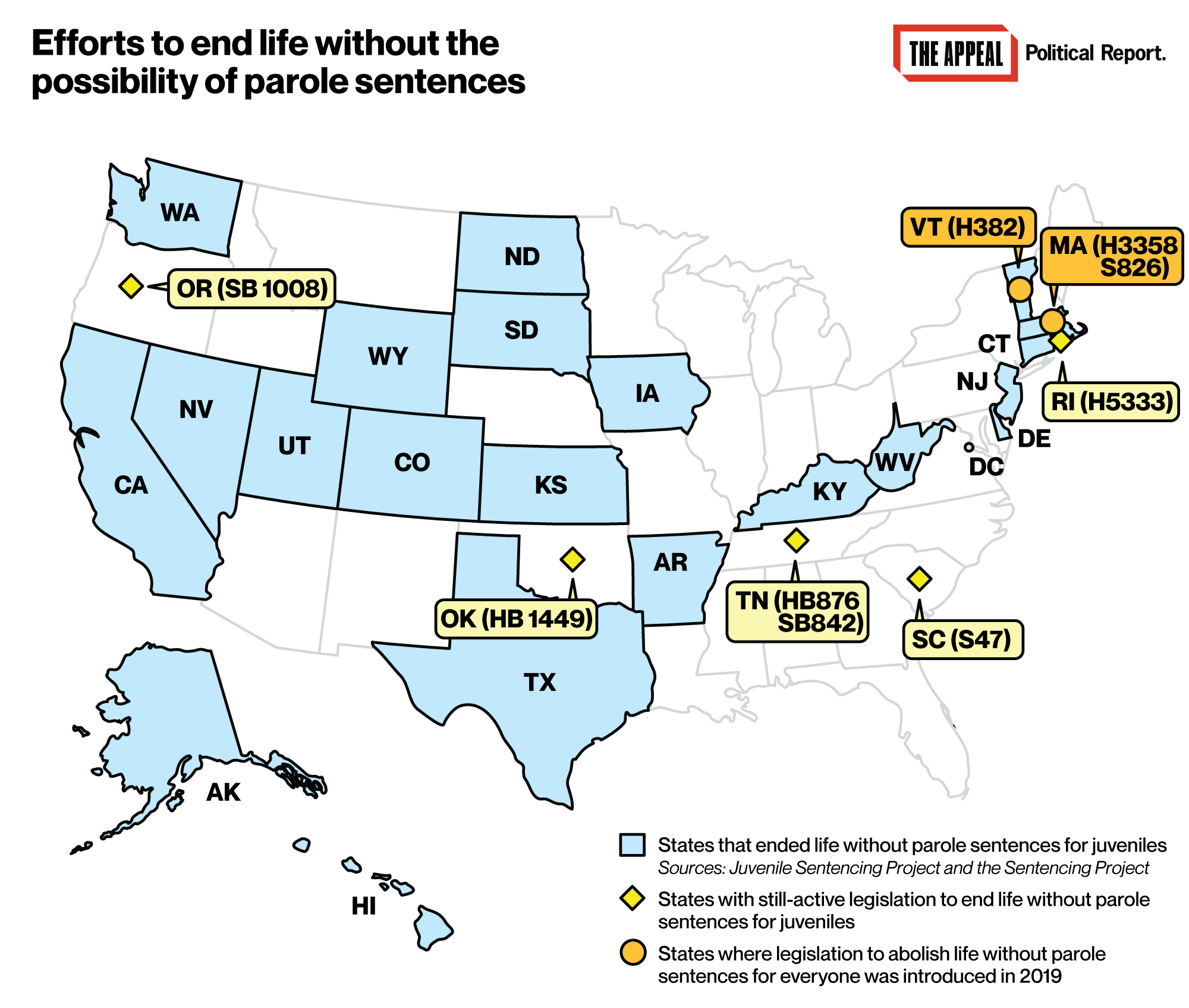Political Report
Washington State Restricts Youth Detention, Amends Three Strikes, and Ends Prison Gerrymandering
Elsewhere in legislatures: Montana will stop suspending driver’s licenses over fines and fees, North Dakota reduces marijuana penalties

Elsewhere in legislatures: Montana will stop suspending driver’s licenses over fines and fees, North Dakota reduces marijuana penalties
Find out more on our legislative roundup page.
Three bills pertaining to the criminal legal system became law in Olympia over the last month.
Detaining minors: Federal law restricts the detention of minors for noncriminal acts but it makes exceptions when such behavior violates a valid court order, and Washington aggressively uses this exception to incarcerate children. Charlotte West reported in The Appeal in March that the state leads the country—by far—in detaining minors for status offenses like skipping school and running away. “The fact that a child can go into detention for something that isn’t a crime is state-sanctioned trauma,” state Senator Jeannie Darneille, a Democrat, told West.
Senate Bill 5290, sponsored by Darneille and signed into law this month, will change this. It will eliminate detention as a sanction for children who disobeyed truancy, and for at risk youth, children in need of services, and dependency petitions. But these restrictions will go into effect at a slower pace than the original bill proposed; they will be phased in between 2020 and 2023. Senator Manka Dhingra, a Democrat involved in negotiations over the bill, told me local judges had objected that to “protect children” they “had no other options other than locking them away.” She described the consequent delay as a way of ensuring the legislature allocates more resources so “children have access to therapeutic options” like early intervention services and therapeutic facilities.
The bill was championed by the Mockingbird Society, a group that focuses on improving foster care and that works with young people who face homelessness. Liz Trautman, director of public policy and advocacy, told me that her organization’s “goal is to take detention off the table so we can address the root causes of behavior like truancy or running away.” Calls for this reform emerged in Mockingbird’s conversations with directly affected young people. “Jail was not something that helped them,” Trautman said. It “either pushed them further in the criminal justice system or made them less willing to trust that the system was going to help them.”
Three strikes: Washington State amended its three-strikes statutes this year by adopting Senate Bill 5288. The law, also sponsored by Darneille, removes second-degree robbery from the list of offenses that can trigger a life without parole sentence.
The bill will not apply retroactively, however, and so the 62 people who are currently serving life without parole sentences in part due to a second-degree robbery conviction will get no relief. The Associated Press’s Tom James reports that the legislation was initially retroactive, but that this clause was removed in part because of the Washington Association of Prosecuting Attorneys, the group that lobbies on behalf of the state’s prosecutors.
I asked Dhingra about the decision to not make the clause retroactive. She said prosecutors objected that many sentences were the result of negotiated pleas and that they might have filed more serious charges had this reform been in place then. She also said many lawmakers “get nervous” about criminal justice reforms and want “buy-in” from prosecutors. “It really came down to making sure we had consensus, making sure other Democrats were comfortable, and not creating something we couldn’t handle,” she said. Dhingra’s proposal for bringing relief to these individuals is expanding post-conviction review.
Prison gerrymandering: Washington became the fifth state to end prison gerrymandering this week. A new law, also sponsored by Darneille, requires the state to count incarcerated people at their last known address for purposes of redistricting, as opposed to where their prison is located. Vaidya Gullapalli and I wrote on this legislation, and on how our counting practices dilute the power of communities of color and urban areas, two weeks ago.
Legislation reforming the criminal legal system advanced elsewhere as well.
Montana and Tennessee: Thanks to a new law the state adopted this month, Montana will stop suspending driver’s licenses over a failure to pay court fines and fees, a practice that can trigger mounting legal and economic hardships. (Virginia adopted a similar law in April, though only as a temporary reform.) Tennessee’s legislature has also passed a bill to restrict license suspensions, though, unlike Montana’s reform, Tennessee’s would apply only when a court determines that a person is too poor to pay or is making “reasonable” efforts to do so.
North Dakota: North Dakota reduced penalties for marijuana possession last month, Kyle Jaeger reports in Marijuana Moment. In a step toward decriminalization, a new law eliminates the threat of jail for first-time offenders who possess under half an ounce. It reduces possession of a greater quantity from a felony to a misdemeanor. North Dakotans rejected a referendum to legalize marijuana last year.
Many of the laws that govern the American criminal justice system are set at the state level. Explore the latest developments on criminal justice reform in state legislatures around the country with the Political Report’s interactive tool.

